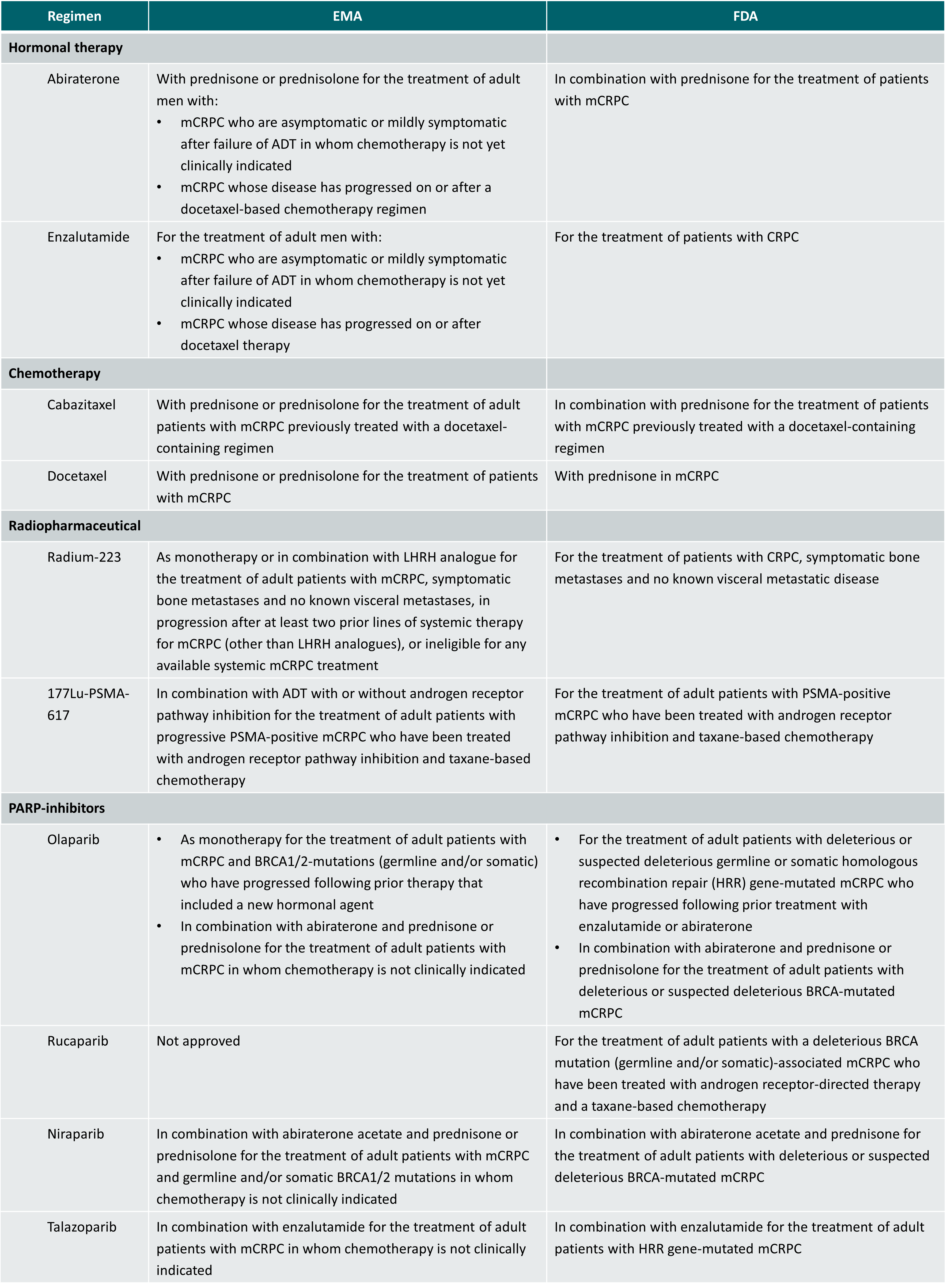Prostate cancer
Treatment selection in mCRPC patients harbouring HRR gene mutations
Aberrations in DNA repair genes occur in 20-30% of mCRPC tumours [1]. These aberrations are most frequently detected in genes involved in DNA damage repair through the homologous recombination repair (HRR) pathway. HRR genes include, but are not limited to, BRCA1, BRCA2, ATM, PALB2, FANCA, RAD51D, CHEK2, and CDK12 [2]. The presence of DNA repair deficiency may, amongst other factors, guide treatment selection in mCRPC [3]. Studies suggest that germline and somatic mutations in HRR genes may be predictive of the clinical benefit of poly(ADP-ribose) polymerase inhibitors (PARPi) [2].
This topic is limited to patients with mCRPC harbouring HRR gene mutations.
Regulatory approval status of drugs for mCRPC discussed in this topic (indications limited to the mCRPC setting, status 15 April 2024)

This educational platform includes case challenges with treatment options that may not be indicated for this use in your country. Please check your local prescribing information.
References
- Mosele F, Remon J, Mateo J, et al. Ann Oncol 2020;31:1491-505. PubMed
- Schaeffer EM, Srinivas S, Adra N, et al. National Comprehensive Cancer Network clinical practice guidelines in oncology: Prostate cancer. Version 4.2024. Available at: https://www.nccn.org/guidelines/category_1
- Cornford P, Tilki D, van den Bergh RCN, et al. EAU – EANM – ESTRO – ESUR – ISUP – SIOG guidelines on prostate cancer. Update 2024. Available at: https://uroweb.org/guidelines/prostate-cancer
